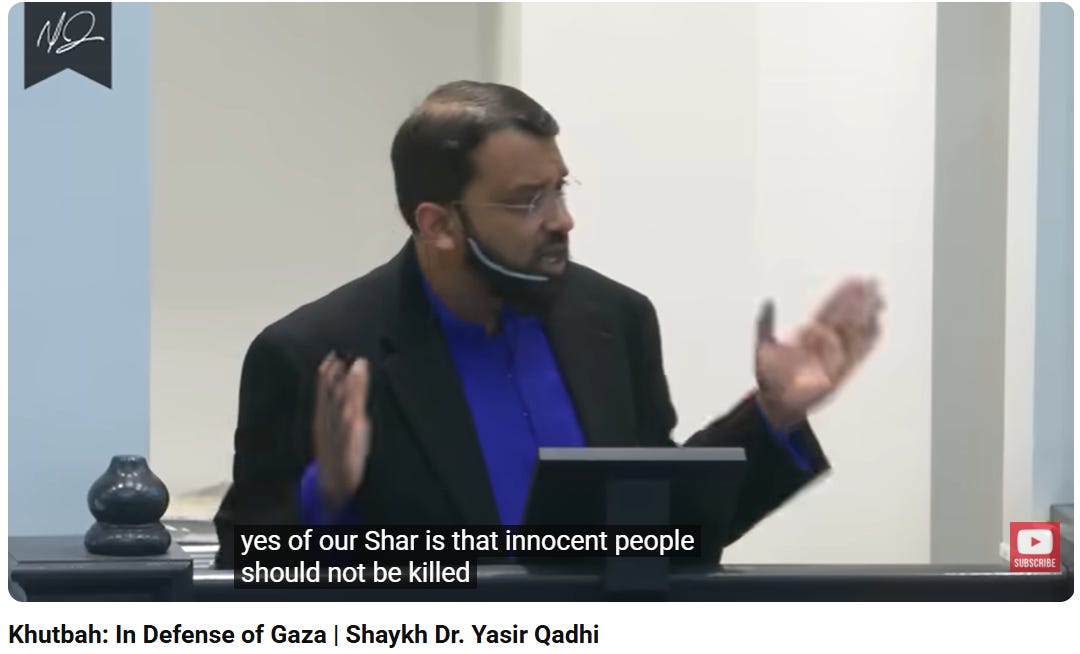Religious Criticism to Political Pressure: How Two Texas Imams Intensified Anti-Israel Activism Post-October 7th
The new report from the INSS highlights shift in rhetoric among influential imams with millions of social media followers, raising concerns about rising antisemitism and delegitimization of Israel
A newly released report from Israel’s Institute for National Security Studies (INSS) examines how prominent American Muslim leaders have intensified their opposition to Israel following the October 7 Hamas attacks. The report focuses on how prominent imams with massive online followings have moved from general criticism of Zionism to direct political attacks on Israeli and American officials, intensifying what the institute calls a “campaign of delegitimization” against Israel.
The analysis, published on November 2, 2025, focuses specifically on Sheikh Yasir Qadhi and Imam Omar Suleiman, two Texas-based religious figures who collectively command millions of followers across social media platforms. According to the INSS document, both leaders have adopted “increasingly hardline positions against Israel” while reframing their messaging within explicitly political contexts that depart from pre-October 7 discourse.

The Shift After October 7
The INSS report documents a measurable evolution in messaging. According to the analysis, Qadhi, who chairs the Fiqh Council of North America and serves as dean of academic affairs at the Islamic Seminary of America, reportedly refused to condemn Hamas’s October 7 attack, offering only a general statement that Islam opposes the killing of innocent people. This marks a departure from his 2017 position when he condemned terrorist attacks carried out in Israel.

In subsequent speeches documented by INSS researchers, Qadhi called on American Muslims to “use their political power” to pressure elected officials regarding Israel, while criticizing former Israeli Defense Minister Yoav Gallant for “genocidal rhetoric” after Gallant’s controversial “human animals” reference to Palestinians. The Washington Institute for Near East Policy similarly documented Qadhi’s October 2023 statements characterizing Palestinian conditions as “worse than apartheid.”
Suleiman, for his part, has taken more direct approaches. The INSS report notes he shared edited video of Israeli Minister Bezalel Smotrich highlighting Gaza destruction, and posted that “your members of Congress are best friends with sanctioned terrorists like Smotrich.” Notably, Suleiman had previously condemned antisemitic attacks, including the 2022 Beth Israel synagogue incident in Texas.

Background and Influence
Qadhi earned his PhD from Yale University after spending a decade studying at the Islamic University of Madinah in Saudi Arabia. Suleiman holds a PhD from the International Islamic University in Malaysia. Both leaders emphasize their criticism targets Zionism and not Jews, according to the INSS analysis.
The report also spotlights both imams’ signatures on a petition signed by 85 American Muslim leaders calling for Muslim-majority countries to sever ties with Israel and impose economic boycotts, describing this as “demanding an end to the Israeli occupation’s genocide in Gaza.” The INSS warns this trend “intensifies the delegitimization campaign against Israel” and potentially increases antisemitism risks, particularly among younger Muslims.

The Report’s Recommendations
In response to these trends, the INSS report calls for a multi-pronged strategy to counter the intensifying delegitimization campaign. The institute recommends investing in public and interfaith diplomacy, actively cultivating relationships with Muslim voices willing to engage in constructive dialogue, and expand strategic alliances with additional ethnic and religious groups across the United States.




I suggest you reccomend Stephen Coughlins books on the master plan by the muslim brotherhood in destroying western society from within